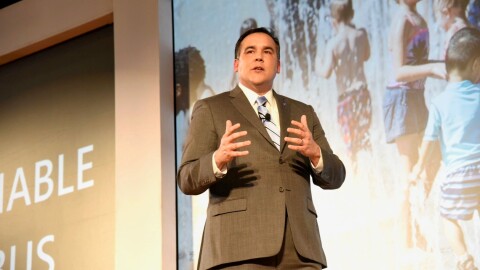The Columbus Freedom Coalition sat down with Mayor Andrew Ginther on Friday, a meeting preceded by high tensions over police violence.
Activists with the coalition interrupted Ginther's during the city’s Martin Luther King, Jr. Day breakfast, and then protested once again during his address earlier this month.
Both protests intended to draw attention to the death of 16-year-old , who was killed by a Columbus Police officer during a robbery sting.
"Columbus, Ohio, has one of the most deadly police forces in the nation," one protestor shouted at the State Of The City. "I see you, and I hear you," Ginther responded from the stage. "And I look forward to meeting with you in the coming weeks, you and your group, to hear your voices."
Tate's family was on hand for Friday's meeting, sharing their experience since he had died.
"The Mayor did not respond to any of them," says Lainie Rini, with the Columbus Freedom Coalition. "He said he was not going to comment today, that he was there to listen. But even his method of listening was very disrespectful. There was no exchange, there was no dialogue."
In a written statement, the Mayor's Office responded that it "set up this meeting for the express purpose of listening to their concerns because it is imperative that we hear from all voices in the community."
Rini says activists wanted to let Tate's family speak and to get answers on the mayor's response to the seven police-involved shootings that have happened so far in 2020. The coalition also wanted the mayor's comment on the city's budgeting priorities when it came to law enforcement and education.
Rini concedes that their group and the city may never see eye to eye.
"We don't believe that [the police and prison system] are ever going to support safe communities and actually they're infringing on the ability of communities to take care of provide resources for themselves," Rini said.
Ginther's office pointed to the Community Safety Advisory Commission that Ginther established to evaluate the Columbus Division of Police.
The office also says it's in the process of implementing 80 recommendations from the commission, like increased de-escalation training, additional training on youth trauma and exploring options for a citizen review board.






